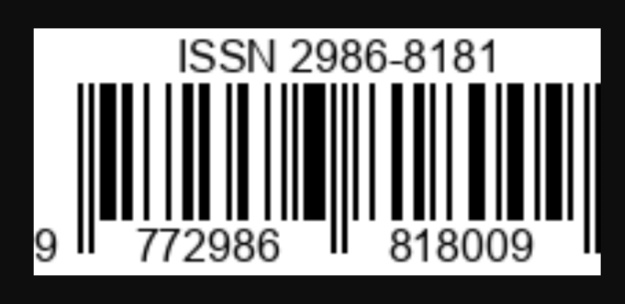Exploring Moderating Effect of Religious Leaders Endorsement (RLE) in Islamic Theory of Consumer Behavior (ITCB) for Electric Vehicles Purchase Intention (EVPI) in Indonesia
Abstract
This conceptual paper aims to expand ITCB by adding Religious Leader Endorsement (RLE) variable in the model and to apply this model to environmental concern which goes to EVPI in Indonesia. The literature review is predominantly of studies on previous research in green products purchase intention through theory of Technology Acceptance Model (TAM), Theory of Planned Behavior (TPB), Theory Reasoned Action (TRA) and small research via religious approach. The proposed research by adding RLE variable will test targeting Indonesian moslem, sampling from certain Top provinces in Indonesia. The causal relationships of the research framework were measured using structural equation modelling. It is found that interest in the field is growing, with a greater variety of topics and methods appearing year on year. However, the authors also identify some issues of concern for the field if it wishes to sustain this growth. First, current ITCB evolution was so slow that not much research was conducted, meanwhile there is so much literature that suggests Religious Leaders Endorsement (RLE) has significant influence on consumer behavior. The theoretical framework provides a new variable of RLE on how moslem customers evaluate electric vehicles and the factors underlying their attitudes and behaviours toward such products in an Islamic and emerging market. Further research related to Religious Organization (RO) should also be tested to complete this framework.
References
Azila, N., Noor, M., Muhammad, A., Kassim, A., Zuriana, C., Jamil, M., Mat, N., Mat, N., & Salleh, H. S. (2012). Creating Green Consumers: How Environmental Knowledge and Environmental Attitude Lead To Green Purchase Behaviour? International Journal of Arts & Sciences, 5(51), 1944–693455.
Bagozzi, R. P., & Yi, Y. (2012). Specification , evaluation , and interpretation of structural equation models. 8–34. https://doi.org/10.1007/s11747-011-0278-x
Bhuian, S. N., Sharma, S. K., Butt, I., & Ahmed, Z. U. (2018). Antecedents and pro-environmental consumer behavior (PECB): the moderating role of religiosity. Journal of Consumer Marketing, 35(3), 287–299. https://doi.org/10.1108/JCM-02-2017-2076
Campbell, D. E., & Monson, J. Q. (2003). Following the Leader? Mormon Voting on Ballot Propositions. Journal for the Scientific Study of Religion, 42(4), 605–619. https://doi.org/10.1046/j.1468-5906.2003.00206.x
Carmudi. (2022). Kelebihan dan Kekurangan Mobil listrik. https://www.carmudi.co.id/journal/kelebihan-dan-kekurangan-mobil-listrik-simak-sebelum-beli/
CNN. (2022). Jumlah kendaraan listrik di Indonesia. https://www.cnnindonesia.com/otomotif/20221013160146-603-860170/berapa-populasi-kendaraan-listrik-di-indonesia-saat-ini
Detik, O. (2022). Target Indonesia Kendaraan Listrik. https://oto.detik.com/mobil/d-6266436/indonesia-target-80-pakai-kendaraan-listrik-tahun-2030-luhut-biar-kurangi-impor-bbm
He, Z., Zhou, Y., Wang, J., Shen, W., Li, W., & Lu, W. (2022). Influence of emotion on purchase intention of electric vehicles: a comparative study of consumers with different income levels. Current Psychology. https://doi.org/10.1007/s12144-022-03253-1
Hope, A. L. B., & Jones, C. R. (2014). The impact of religious faith on attitudes to environmental issues and Carbon Capture and Storage (CCS) technologies: A mixed methods study. Technology in Society, 38, 48–59. https://doi.org/10.1016/j.techsoc.2014.02.003
Kahf. (1978). A Contribution of Theory of Consumer Behaviour in an Islamic Society.pdf.
Katadata. (2022a). Populasi Mobil berbaterai listrik. https://databoks.katadata.co.id/datapublish/2022/04/21/populasi-mobil-berbaterai-listrik-diperkirakan-tembus-68-pada-2040
Katadata. (2022b). Suvei KIC. https://databoks.katadata.co.id/datapublish/2022/04/22/survei-kic-harga-tinggi-jadi-alasan-publik-belum-menggunakan-kendaraan-listrik
Kautish, P., & Dash, G. (2017). Environmentally concerned consumer behavior: evidence from consumers in Rajasthan. Journal of Modelling in Management, 12(4), 712–738. https://doi.org/10.1108/JM2-05-2015-0021
Kemenhub. (2020). Regulation of the Minister of Transportation on Converting a Motorcycle With Fuel Motor Drive Into a Battery-Based Electric Motorcycle. Regulation of the Minister of Transportation Number PM 65 Year 2020.
Kementrian Agama, S. A. (1971). Al-Qur’an al-karim dan terjemahannya. In Komplek Percetakan Al Qur’anul Karim Kepunyaan Raja Fahd (p. 1281).
Khan, M. A. (2020). Theory of Consumer Behavior : An Islamic Perspective. MPRA Paper, 104208, 1–36. https://mpra.ub.uni-muenchen.de/104208/1/MPRA_paper_104208.pdf
Khan, M. N., & Kirmani, M. D. (2018). Role of religiosity in purchase of green products by Muslim students: Empirical evidences from India. Journal of Islamic Marketing, 9(3), 504–526. https://doi.org/10.1108/JIMA-04-2017-0036
Klabi, F., & Binzafrah, F. (2021). Exploring the relationships between Islam, some personal values, environmental concern, and electric vehicle purchase intention: the case of Saudi Arabia. Journal of Islamic Marketing. https://doi.org/10.1108/JIMA-06-2020-0170
Kominfo. (2022). KTT G20 Bali, Momentum Konversi Penggunaan Kendaraan BBM ke Kendaraan Listrik di Indonesia. https://www.kominfo.go.id/content/detail/44005/ktt-g20-bali-momentum-konversi-penggunaan-kendaraan-bbm-ke-kendaraan-listrik-di-indonesia/0/berita
Krejcie, R. V, & Morgan, D. A. (1970). Determining Sample Size for Research Activities. Educational and Psychological Measurement, 30, 607–610. https://doi.org/10.1177/001316447003000308
Manutworakit, P., & Choocharukul, K. (2022). Factors Influencing Battery Electric Vehicle Adoption in Thailand—Expanding the Unified Theory of Acceptance and Use of Technology’s Variables. Sustainability (Switzerland), 14(14). https://doi.org/10.3390/su14148482
Pasaribu, D., Takwin, B., & Martens, P. (2022). The role of religious narratives and religious orientation towards concerns for the natural environment and animal welfare. PLoS ONE, 17(8 August), 1–24. https://doi.org/10.1371/journal.pone.0271515
Presiden Republik Indonesia. (2019). Peraturan Presiden Nomor 55 Tahun 2019 Tentang Percepatan program Kendaraan Bermotor Listrik Berbasis Baterai (Battery Electric Vehicle) Untuk Transportasi Jalan. Republik Indonesia, 55, 1–22.
Rashid, N. R. N. A., Jusoff, K., & Kassim, K. M. (2009). Eco-Labeling Perspectives amongst Malaysian Consumers. Les Perspectives De Lecoetiquetage Chez Les Consommateurs Malaisiens, 5(2), 1–10. http://search.ebscohost.com/login.aspx?direct=true&db=aph&AN=41990596&site=ehost-live
Riptiono, S. (2022). The Effects of Consumption Value, Environmental Concerns, And Consumer Attitudes Towards Consumer Purchase Intentions of Electric Cars. Jurnal Aplikasi Bisnis Dan Manajemen, 8(1), 23–32. https://doi.org/10.17358/jabm.8.1.23
Underwood, C. (2000). Islamic Precepts and Family Planning: The Perceptions of Jordanian Religious Leaders and Their Constituents. International Family Planning Perspectives, 26(2), 110–117. https://doi.org/10.2307/2648299
Vincent. (2010). Religion and the Decision to Donate Organs: Exploring the Potential Role of Religious Leaders. Journal of Community & Applied Social Psychology, 16(December 2010), 1–16. https://doi.org/10.1002/casp
Vitell, S. J., Singh, J. J., & Paolillo, J. G. P. (2007). Consumers’ ethical beliefs: The roles of money, religiosity and attitude toward business. Journal of Business Ethics, 73(4), 369–379. https://doi.org/10.1007/s10551-006-9212-4
Wang, J. Y., Liu, Y. Q., & Kokko, A. (2014). The Electric Vehicle Development: Experiences Aboard and Enlightenment to China. Applied Mechanics and Materials, 541–542, 1549–1555. https://doi.org/10.4028/www.scientific.net/AMM.541-542.1549
Ziegler, A. (2012). Individual characteristics and stated preferences for alternative energy sources and propulsion technologies in vehicles: A discrete choice analysis for Germany. Transportation Research Part A: Policy and Practice, 46(8), 1372–1385. https://doi.org/10.1016/j.tra.2012.05.016





